Nearly 10 million people worldwide suffer from Parkinson’s disease (PD), a condition that causes muscle stiffness and tremors due to the loss of the brain chemical dopamine. One cause of PD is exposure to toxins. In a recent study, Scott A. Waldman, MD, Ph.D., of Thomas Jefferson University and his team found that a gut receptor protein called GUCY2C may prevent the development of PD by protecting against brain damage and toxicity.
The work is published in the journal npj parkinson’s disease.
New developments for Parkinson’s disease
Dr. Waldman’s team has been studying GUCY2C for years. It is generally known for its role in the secretion of water and salt in the intestine. However, GUCY2C is also produced in the brain. Previously, the team removed GUCY2C from intestinal cells in mice and observed an increase in the expression of genes associated with Parkinson’s disease.
“That’s when we made that leap from the gut to the brain,” says Dr. Waldman. “If we removed GUCY2C from the brain, would that impact susceptibility to PD?”
Lara Cheslow, an MD-Ph.D. student in the Waldman lab, worked with Richard Smeyne, Ph.D., chair of the department of neuroscience and director of the Jefferson Comprehensive Parkinson’s Disease and Movement Disorder Center, to investigate this question. They found that mice in which GUCY2C expression was “inactive” or removed had more brain cell damage and were more susceptible to toxins than mice with normal GUCY2C.
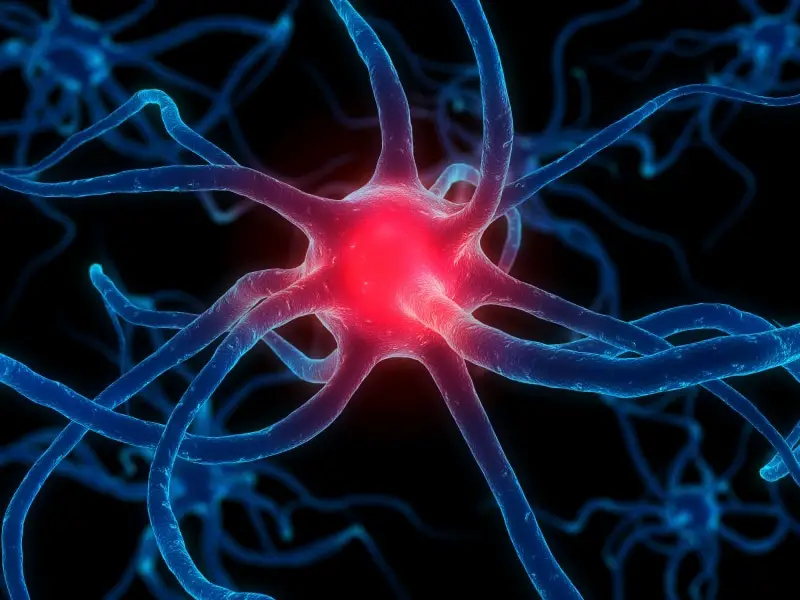
Furthermore, when mice with normal GUCY2C levels were exposed to a toxin, GUCY2C levels naturally increased. This suggests that it was almost as if GUCY2C played a protective role in the brain cells or neurons of the mice, which surprised the researchers given its normal role in the gut.
This led the team to examine human samples to see if GUCY2C expression showed the same trends. Samples from patients with Parkinson’s disease showed elevated levels of GUCY2C compared to samples from patients who did not have Parkinson’s disease, a result that puzzled the researchers.
Current Parkinson’s therapies mimic dopamine, which simply manages the symptoms of PD. Targeting GUCY2C may be a more promising avenue to potentially prevent the progression of the disease overall by protecting against damage to neurons. Although these studies are in the early preclinical stages, Dr. Waldman hopes they could one day benefit Parkinson’s patients.
Parkinson’s disease can progress silently without being detected for years
Has someone close to you just been diagnosed with Parkinson’s disease? Well, chances are the disease has been quietly but insidiously progressing for more than 10 years, as recent research shows.
Conducted at the University of Montreal and published in the journal Nature Communications, the research sheds new light on the brain’s surprising resilience during the asymptomatic period of Parkinson’s.
In their study, a team led by UdeM neuroscientist Louis-Éric Trudeau demonstrated that movement circuits in the brains of mice are insensitive to the almost total loss of active secretion of this chemical messenger.
This observation is surprising because dopamine is a chemical messenger known for its importance in movement. And in Parkinson’s disease, dopamine levels in the brain decline relentlessly.
“This observation went against our initial hypothesis, but this often happens in science, and it forced us to reevaluate our certainties about what dopamine actually does in the brain,” said Trudeau, a professor in the Department of Pharmacology and Physiology and the Department of Neuroscience at UdeM.
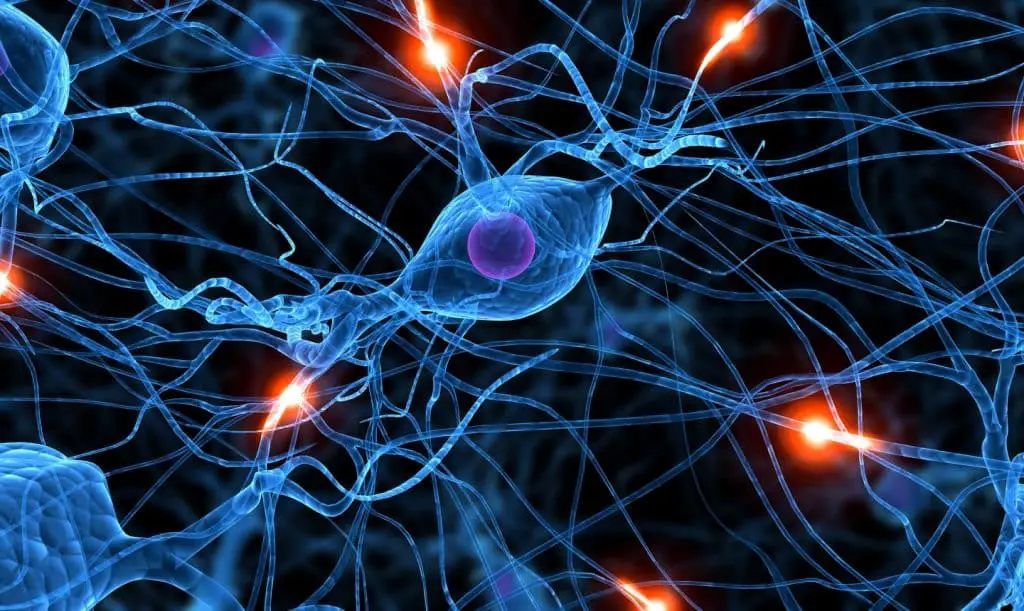
Using genetic manipulations, Trudeau and his researchers eliminated the ability of dopamine-producing neurons to release this chemical messenger in response to the normal electrical activity of these cells.
Benoît Delignat-Lavaud, a doctoral student in Trudeau’s lab, expected to see in these mice a loss of motor function similar to that seen in individuals with Parkinson’s disease.
Surprisingly, the mice showed completely normal movement ability.
Meanwhile, measurements of overall dopamine levels in the brain, carried out by the team of UdeM trauma specialist Louis de Beaumont at the Centre de recherche de l’Hôpital du Sacré-Cœur de Montréal, revealed that extracellular dopamine levels in the brains of these mice were normal.
These findings suggest that the activity of movement circuits in the brain requires only low basal levels of dopamine.
It is therefore likely that in the early stages of Parkinson’s disease, basal levels of dopamine in the brain remain sufficiently high for many years, despite the gradual loss of dopamine-producing neurons. It is only when a minimum threshold is exceeded that motor disturbances appear.
By identifying the mechanisms involved in dopamine secretion in the brain, this advance in Parkinson’s research could help identify new approaches to reduce the symptoms of this incurable neurodegenerative disease, the scientists say.
Study Strengthens Evidence That Parkinson’s Originates in the Gut
Ask any neurologist: Parkinson’s disease is a brain disorder. The obvious symptoms of Parkinson’s disease—uncontrollable shaking, slowed movements, and the feeling that your feet are glued to the ground—all result from the loss of neurons in a region of the brain that helps control movement.
Many researchers, however, believe that this neurodegenerative disease may originate far from the brain, in the gut, and years before the first neurological signs appear.
New findings from Columbia researchers David Sulzer, Ph.D., and Dritan Agalliu, Ph.D., and two of their graduate students are adding to the evidence for this hypothesis and showing that what triggers the early gastrointestinal changes in Parkinson’s may be a misdirected immune attack.
“If this is the onset of Parkinson’s in many people, we could potentially identify who has the disease before it reaches the brain and hopefully nip it in the bud,” Sulzer says. The new findings were published in Neuron.
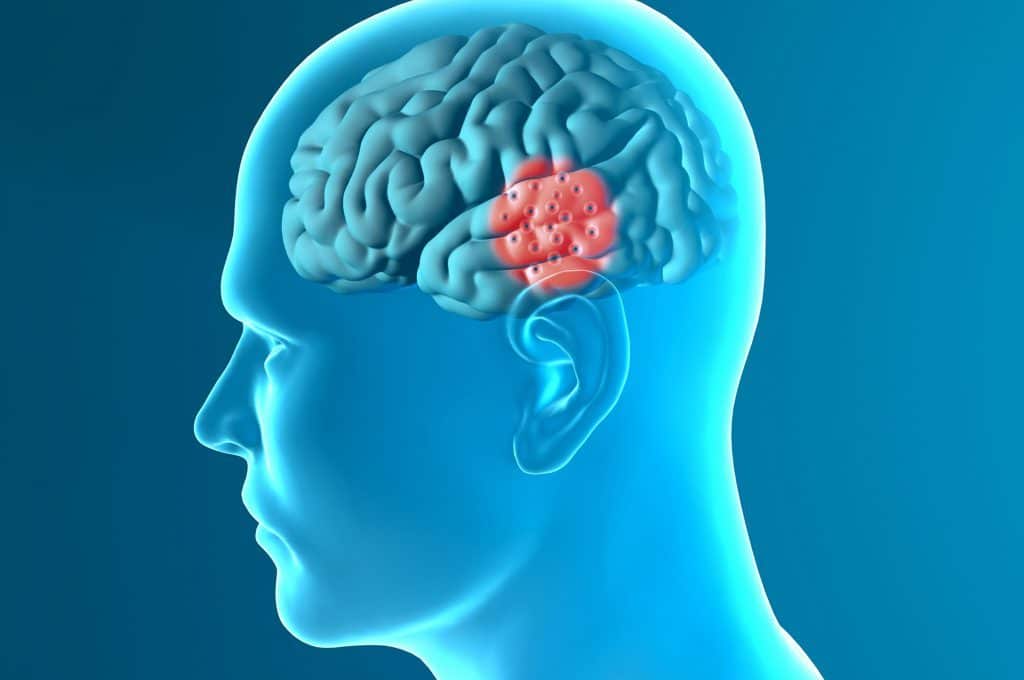
The gut-based theory of Parkinson’s, originally proposed 20 years ago, began to intrigue Sulzer after his research highlighted the role of the autoimmune response in Parkinson’s.
In Parkinson’s, a protein called alpha-synuclein misfolds, accumulates inside neurons, and slowly poisons the cells. Sulzer’s lab, in collaboration with immunologists at the La Jolla Institute of Immunology, has shown that small pieces of misfolded alpha-synuclein can also appear on the outside of neurons, making the neurons vulnerable to attack by the immune system. The immune attack may cause more severe damage to neurons than internal deposits of alpha-synuclein.
“The blood of Parkinson’s patients often contains immune cells that are predisposed to attack neurons,” Sulzer says, “but it’s not clear where or when this happens.”
The gut was an intriguing possibility because it contains the same neurons and because most Parkinson’s patients suffer from constipation years before brain symptoms emerge and the disease is diagnosed. To pursue this hypothesis, Sulzer teamed up with Agalliu, a neuroimmunologist with expertise in mouse models of another neurological disorder (multiple sclerosis) that has autoimmune features.
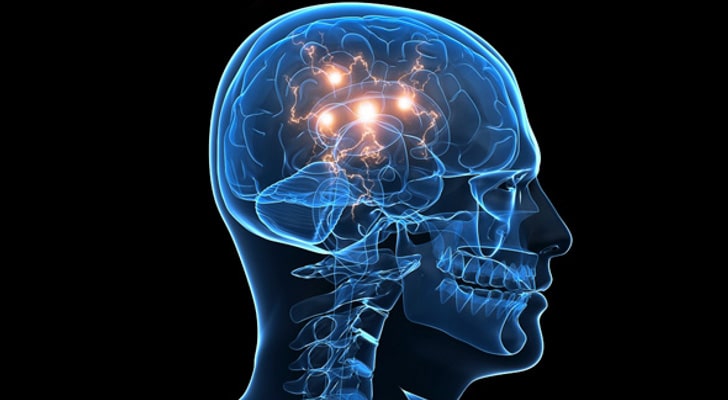
To find out if an immune reaction to alpha-synuclein might trigger the disease, and where, Francesca Garretti and Connor Monahan, graduate students led by Agalliu and Sulzer, first created a mouse that could display pieces of misfolded alpha-synuclein on cell surfaces (natural mice don’t have this ability). They then injected the mice with alpha-synuclein and monitored what happened in the brain and gut.
The researchers found no Parkinson-like signs in the brain, but they did note that an immune attack on neurons in the gut produced constipation and other gastrointestinal effects similar to those seen in most Parkinson’s patients years before they were diagnosed with the disease.
“This shows that an autoimmune reaction can lead to what appears to be the early stages of Parkinson’s and is strong evidence that Parkinson’s is partly an autoimmune disease,” Sulzer says.
These findings also raise the possibility that early detection, and subsequent interruption, of an immune response in the gut could prevent a subsequent attack on neurons in the brain and halt Parkinson’s in its tracks.
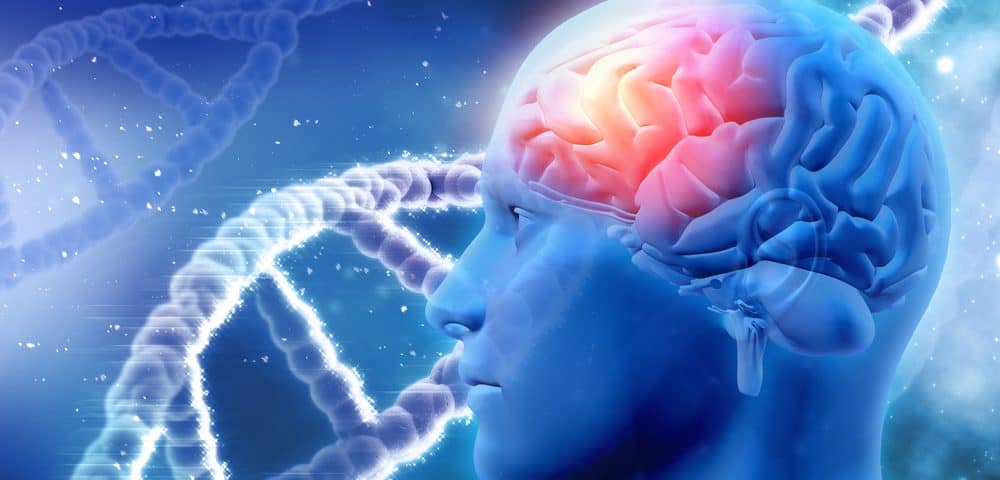
At the moment, however, it is unclear how important the immune system plays in the Parkinson’s brain. The answer to this question could become clearer if researchers could figure out why their mice’s brains did not develop any signs of Parkinson’s.
The team hypothesizes that immune cells in their mouse model may not be reaching the brain because the animals are young and age has not yet weakened the blood-brain barrier enough to allow immune cells to pass through. Opening the barrier or accelerating the aging process could cause the mice to develop gastrointestinal and brain symptoms.
“Our ultimate goal is to develop a mouse model of Parkinson’s disease that recreates the human disease process, which doesn’t exist right now,” Sulzer says. “This will be critical for answering questions about the disease that we can’t explore in people and ultimately for developing better therapies.”
#Parkinsons #Disease #Gut #Protein #GUCY2C #Protect #Brain #Cells
